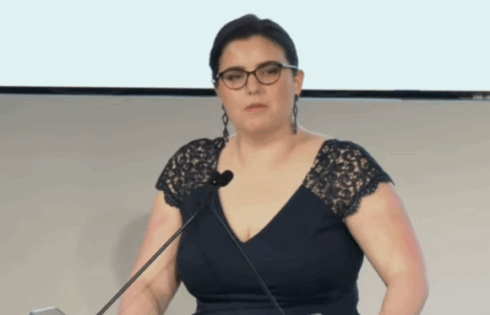
UPDATED
OPINION: Study omits more physically demanding tasks, doesn’t ask husbands
A recent paper that claims to find women face greater burdens than men when it comes to household chores is flawed in its design.
“The division of household labor is an important but often overlooked driver of global gender inequity,” the Archives of Women’s Mental Health paper suggests. “Women carry a disproportionate burden of domestic tasks, and this burden may be linked with their health and wellbeing.”
The lead authors are psychology grad student Elizabeth Aviv and Professor Darby Saxbe, both at the University of Southern California. They wrote a summary of their research for The Conversation as well.
But the scholars designed the study in such a way, intentionally or not, as to bias the results to make it seem like women do a disproportionate amount of work in the house.
First, they only asked women to self-report how much time they spend on different tasks and then estimate how much their husbands spent. To their credit, the researchers suggest that future studies should collect more data from men.
Second, and this is actually the biggest flaw, they selected chores that are more geared toward women’s natural nurturing tendencies.
“Overall, mothers reported greater responsibility than their partners for the cognitive labor of 29 out of 30 tasks and the physical household labor for 28 out of 30 tasks,” the scholars wrote. “Taking out the garbage was the only task for which partners were responsible for both the cognitive and physical labor, and home maintenance was the only other task for which partners were responsible for the physical.”
But why is home maintenance only one task?
The researchers get to 30 tasks by mixing up specific tasks and general tasks. For example, “bathing and grooming,” “helping with homework,” and “morning routine” are three separate tasks. But there’s also one called “supervising kids.”
It seems like those three other tasks all fall under “supervising kids.”
They drew the tasks from a game called “Fair Play,” which features few male-oriented tasks.
The idea of the card game is to get couples to talk about different responsibilities in and out of the home, such as taking care of kids and managing finances.
This in itself is not a bad idea – it is good for couples to talk about who will do what in the home. The designer of the game even says that “what’s fair is not always equal, and what’s equal is not always fair” and the goal is not necessarily to get to a perfect 50-50 split.
But few of the responsibilities on the cards are tasks that men typically would be expected to perform – and even those that are were largely omitted by the researchers, such as “home renovation” and “lawn and plants.”
By using the card game, the researchers omit male-oriented tasks including cutting the grass, emptying the dehumidifier, cleaning out the gutters, changing light bulbs, fixing shingles, picking up branches, weeding, changing the oil in the car, and staining the deck.
These tasks are not done every day, but they are, to varying degrees, more physically demanding than the chores listed.
Another interesting data point stands out – according to the self-reported data, most sports are done primarily by the mom.
But most sports coaches, even volunteers, are men.
“Only 26% of youth sports head coaches in 2022 were female, up slightly from 24% in 2019,” the Aspen Institute reports, based on Sports & Fitness Industry Association data.
Furthermore, the survey participants were parents of three-year-olds and younger. The researchers said they picked tasks “that were specifically applicable to parents of two- to three-year-old children” and interviewed women when they were “approximately 36 months postpartum.”
By the way, being parents of young kids might also be the reason women reported burnout and other mental health problems. It is stressful parenting young kids.
Even putting aside all those curious research design choices, women probably do spend more time on household cleaning.
They also work fewer hours than men, likely because they are naturally suited for nurturing and taking care of children and others.
Women tend to be better at making a home look nice. It is why the meme below is funny.

It is okay if women are more inclined to keeping a home and men spend more time working and doing physically demanding chores.
There does not need to be a war between the sexes, but rather unity within the marriage.
Editor’s note: A sentence about ‘Fair Play’ no longer says it is biased, but that it ‘features few male-oriented tasks.’
MORE: Black nationalism on rise due to white supremacy, Rice study suggests
IMAGES: Bogubogu/Shutterstock; Kat Hasty/X/Know Your Meme
Like The College Fix on Facebook / Follow us on Twitter







Please join the conversation about our stories on Facebook, Twitter, Instagram, Reddit, MeWe, Rumble, Gab, Minds and Gettr.